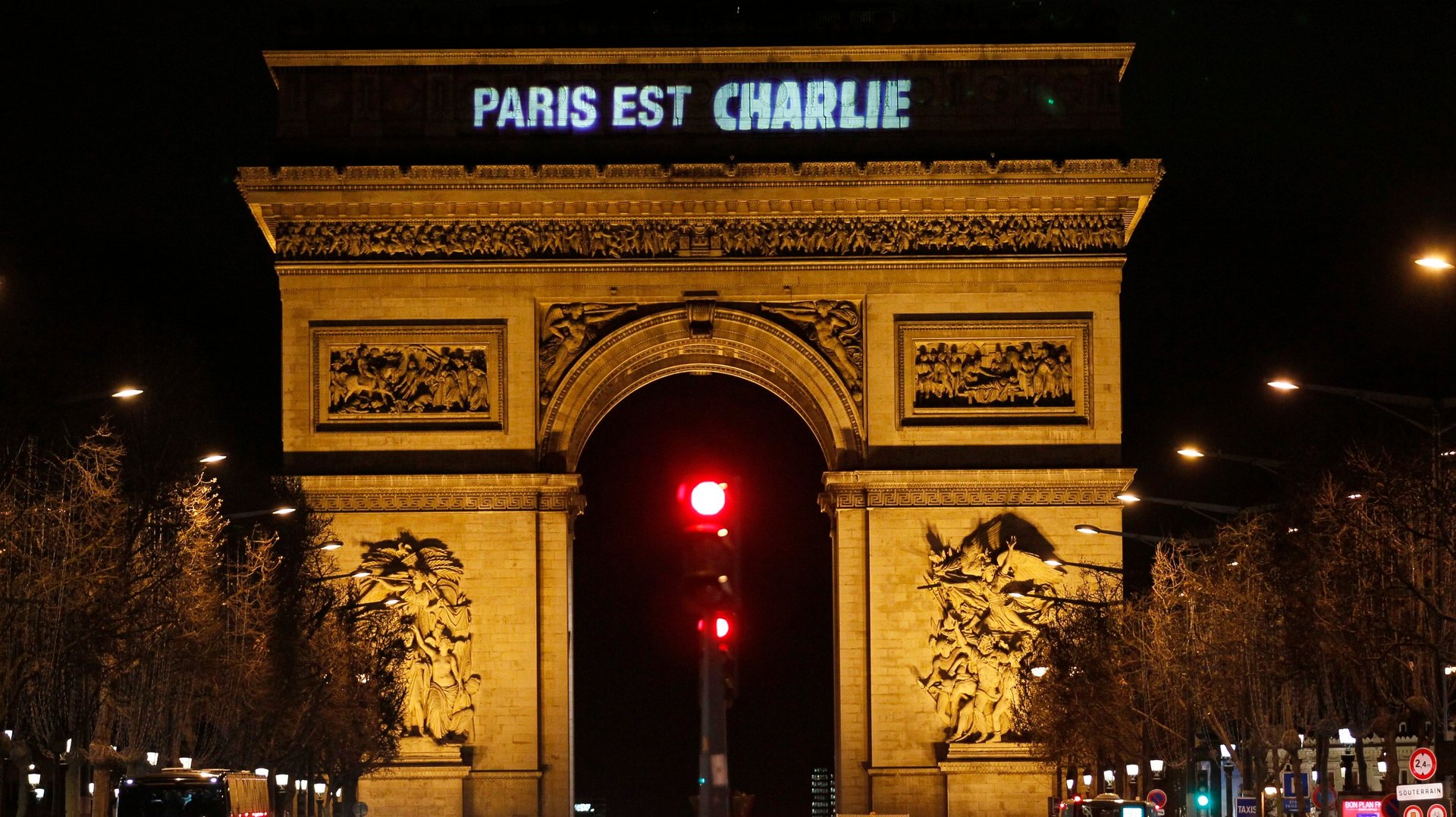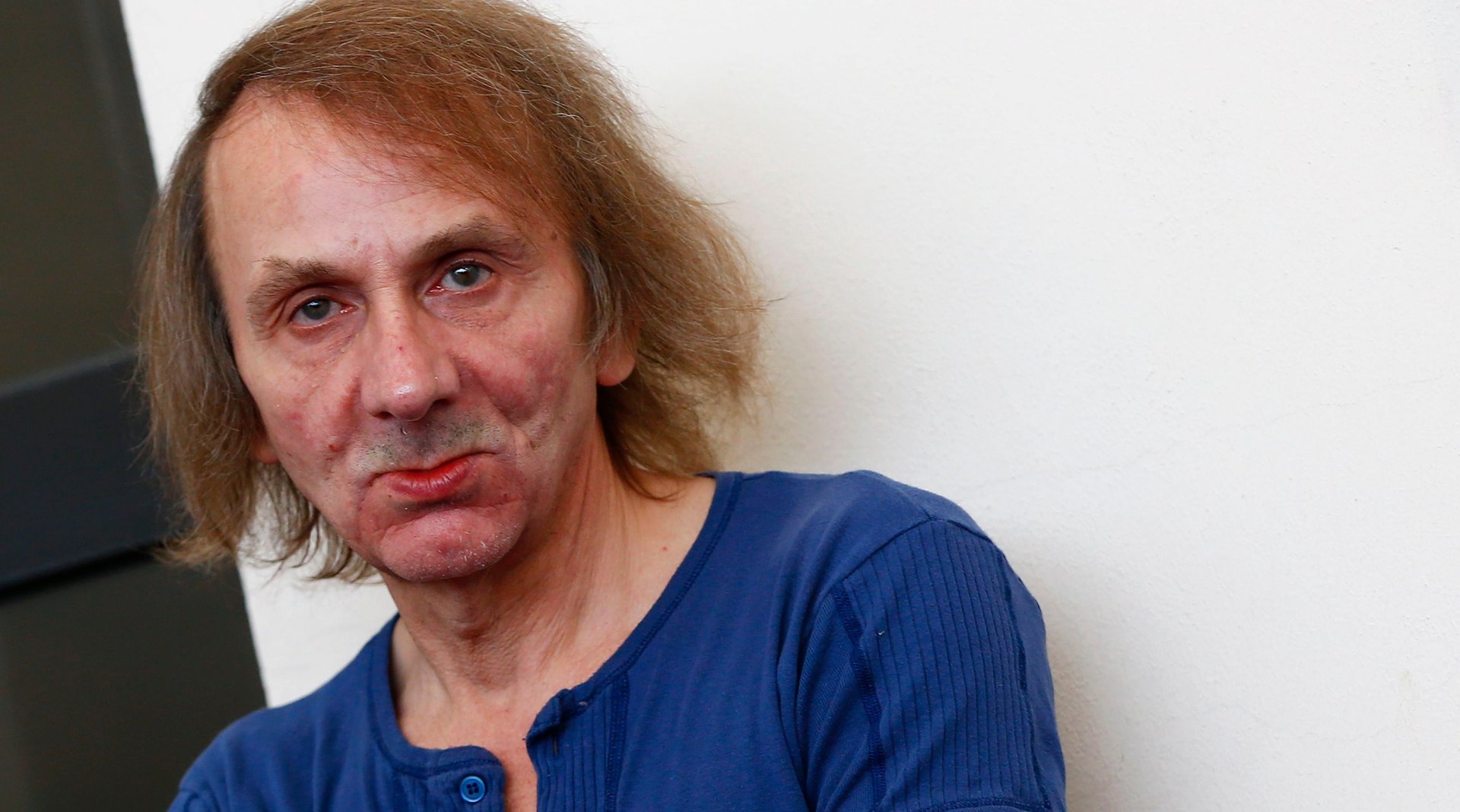Why France’s most famous writer is predicting a Muslim president
On Sunday, in an unprecedented move, French president Francois Hollande will join with the rightwing opposition, unions, and human rights organizations in a national unity march in Paris (link in French) in the wake of massacre at the satirical magazine Charlie Hebdo earlier this week.


On Sunday, in an unprecedented move, French president Francois Hollande will join with the rightwing opposition, unions, and human rights organizations in a national unity march in Paris (link in French) in the wake of massacre at the satirical magazine Charlie Hebdo earlier this week.

The only group not invited tomorrow? The Front National, the popular anti-European, anti-immigration party that has now become France’s biggest party in Europe. ”This is a total abuse of the concept of national unity,” its leader, Marine Le Pen, said (link in French). “They will assume the consequences with voters.”
Sunday’s march echoes the central prophecy of the most talked about book in France right now—Submission, by France’s most famous living writer, Michel Houellebecq, which was released on Wednesday with an unusually-large 150,000-copy run. In the novel, he imagines the year 2022, when the French left and right are rejected by voters. The election looks like it’s going to Le Pen and in an unprecedented move, the left and right join to throw their support behind a man named Mohammed Ben Abbes. Thus, a Muslim is elected president of France.
It was, in fact, a parody of Houellebecq and his novel that was on the last cover of Charlie Hebdo before the attack:
In the novel, Ben Abbes legalizes polygamy, joins in a trading bloc with Turkey, and brings shariah and the veil to France, a country with strict separation of church and state. The main character, a dull academic, finds himself converting to Islam (which means “submission”) to get ahead in the rebranded Islamic University of Paris-Sorbonne, teased by the illicit appeal of the pleasures of several wives.
Compared to some of the author’s past books, this is closer to the counter-factual, genre-bending science fiction of the US-under-Nazi-occupation The Man in the High Castle. “It is a possibility—not in as short a term as in the book, not in 2022, but it’s a real possibility,” Houellebecq has said and denied that he was helping stoke anti-Muslim feeling. “Marine Le Pen doesn’t need this,” he said. “Things are working pretty well for her already.”
Judging by readers reactions even before the Charlie Hebdo attack, the ideas in the book are resonating—the book is number one on Amazon in France. The next five books are collections of Charlie Hebdo cartoons, and then the seventh bestselling book is The French Suicide, a lengthy essay by Eric Zemmour that argues the 1968 student uprising, immigration, and not enough women staying at home to have kids are responsible for the decline of France. That book has sold 400,000 copies.
Many have suggested that the two books, captivating readers even before the attacks, capture the current mood—a decaying France that has lost faith with its elites, and is struggling to cope with a large Muslim population that doesn’t share its values. But what Houellebecq’s novel does is more than that, as The Guardian pointed out in its review:
Islamists and anti-immigration demagogues, the novel gleefully points out, really ought to be on the same side, because they share a suspicion of pluralist liberalism and a desire to return to “traditional” or pre-feminist values, where a woman submits to her husband—just as “Islam” means that a Muslim submits to God.
In fact, in an interview with the Paris Review, Houellebecq rejects Zemmour’s view that France is committing to some sort of end with the rise of a large Islamic population:
Europe is committing suicide and, in the middle of Europe, France is struggling desperately to survive. It is almost the only country that is fighting to survive, the only country whose demographics allow it to survive… what’s more, for people to convert is a sign of hope, not a threat. It means they aspire to a new kind of society.
Houellebecq has left Paris and stopped promoting the novel (link in French) following the death of his friend, Charlie Hebdo’s economist, in the attack. But while some elements of his book seem to be coming to life, France couldn’t be farther away from a Muslim leader—polls currently show that Le Pen, who was invited to meet with Hollande at the presidential palace, would win a presidential election outright if it was held now.